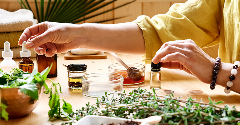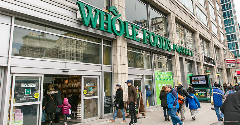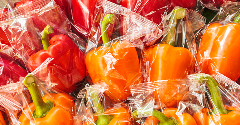News
In Ireland, Subway’s sandwich rolls are not legally bread
13 Oct 2020The Irish Supreme Court ruled that Subway bread is not legally considered as such. Instead, its sugar content, which is five times above what Irish law specifies as the acceptable threshold for bread, lands the company’s sandwich rolls in the confectionery category. The ruling was a result of a tax dispute case.
This finding by Ireland’s highest court requires Bookfinders Ltd., an Irish Subway franchise, to pay a value-added tax (VAT) on its sandwiches. Sweets and pastries are not considered an essential food under Irish law and are, therefore, subject to a value-added tax of 13.5 percent under Ireland’s VAT Act of 1972. “Staple foods,” like bread, are not subject to this tax. However, to qualify as a staple product, the Irish government defines bread as a product where “fat, sugar and bread improver, subject to the limitation that the weight of any ingredient specified in this subclause shall not exceed 2 percent of the weight of flour included in the dough.”

In the judgment, the court ruled, "There is no dispute that the bread supplied by Subway in its heated sandwiches has a sugar content of 10% of the weight of the flour included in the dough, and thus exceeds the 2% specified."
Subway maintains that its bread is only bread, and MarketWatch reported that the company is currently reviewing the tax ruling.
This latest ruling from the Irish Supreme Court was heard on appeal after the case meandered through four appellate courts over 14 years where it was heard and then subsequently dismissed in each case. Subway’s Galway-based franchisee sued the Irish taxing authorities for a refund of VAT paid between 2004 and 2005. The company argued that its heated sandwiches, coffees and teas were eligible for 0% VAT. The composite VAT rate they paid was 9.2%.
Subway is not unfamiliar with controversy. The company came under scrutiny in 2014 when reports surfaced that its bread was baked with a chemical used in yoga mats. In response, the company removed the ingredient and changed the recipe. Depending on whether the company accepts the ruling from the country's highest court, it could consider another reformulation of its sandwich rolls in order to qualify under the legally defined definition for bread.
Related news

PepsiCo formulates ‘naked’ Cheetos and Doritos products
31 Dec 2025
US food giant PepsiCo has launched its Simply NKD range, a move it says reimagines its popular products with new formulations free from artificial flavours, dyes, and colours.
Read more
Debate over ban on ‘meaty’ names for plant-based products reaches stalemate
26 Dec 2025
The debate over a ban on plant-based products using “meaty” terms has reached a stalemate, leaving manufacturers in limbo and still facing overhauls to their marketing and packaging.
Read more
Ingredient transparency key to success in European natural health market
12 Dec 2025
Europe’s $40.7 billion supplements market is growing fast, fuelled by demand for products that support healthy ageing, mental wellbeing, and preventive health, say experts.
Read more
Whole Foods Market forecasts fibre frenzy for 2026
11 Dec 2025
Whole Foods Market has released its top 2026 trends, predicting that a fibre frenzy will take place next year as health-conscious consumers seek out nutritious, filling options.
Read more
Which sustainability-related labels are consumers willing to pay a premium for?
10 Dec 2025
Products with animal welfare and geographic origin labels elicit a higher willingness to pay a premium than those with carbon-related labels, research suggests.
Read more
Sorghum emerges as better-for-you hero ingredient
9 Dec 2025
With the launch of Novak Djokovic’s sorghum-based brand, the grain’s popularity in the better-for-you snacking sphere is on the rise, thanks to its nutritional and sensory properties.
Read more
Turning global trade challenges into opportunities
4 Dec 2025
While our food innovation ecosystem is in a healthy place, certain barriers persist. A panel of experts at Fi Europe shared their ideas and strategies for overcoming these, to fully unleash Europe’s potential.
Read more
Yuka’s food scanning app helps consumers make healthier choices
2 Dec 2025
Global food scanning app Yuka helps consumers understand the content of their shopping baskets and shapes producers’ reformulation plans.
Read more
Plastic packaging toxicity a ‘ticking timebomb’ for FMCG companies
1 Dec 2025
Studies on the toxicity of plastic have spiked in the past decade – and the evidence points to a “ticking timebomb” for manufacturers and consumers alike, an analysis suggests.
Read more
Non-UPF Program extends certification scheme to entire food industry
30 Nov 2025
The Non-UPF Program has extended its certification scheme to the wider food sector, championing a move towards healthier consumption habits.
Read more